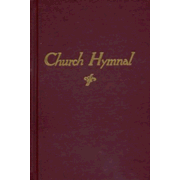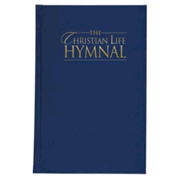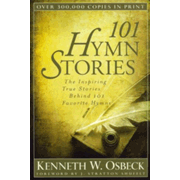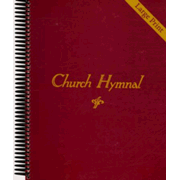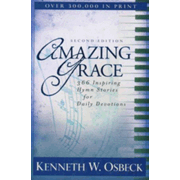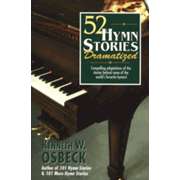Hymn & History
Luke 2:14
“Hark The Herald Angels Sing”
By Charles Wesley, 1739
Youtube by Worship Video https://www.youtube.com/watch?v=7x2IpLSfqp8

Purpose of
Hymnal Journaling
Reflect on the weekly hymns as you color/doodle and sing along. Use a hymnal of your own, order one at the bottom of this page, or print out sheet music from the internet.
Directions for
Hymnal Journaling
2. Read History
3. Color/Doodle Hymn
4. Share photo in comments OR
5. Share photo in Facebook Group
Member Submitted Pages for This Hymn



Creative-Bible-Journaling.com has collected the following information and lyrics from various websites, for the sole purpose of sharing with you, for educational purposes only. No money is exchanged for this information.

Hymn Lyrics
THE LYRICS ~
“Hark The Herald Angels Sing”
Hark! the herald angels sing,
Glory to the newborn King:
peace on earth, and mercy mild,
God and sinners reconciled!”
Joyful, all ye nations, rise,
join the triumph of the skies;
with th’angelic hosts proclaim,
“Christ is born in Bethlehem!
Refrain:
Hark! the herald angels sing,
“Glory to the newborn King”
Christ, by highest heaven adored,
Christ, the everlasting Lord,
late in time behold him come,
offspring of the Virgin’s womb:
veiled in flesh the Godhead see;
hail th’incarnate Deity,
pleased with us in flesh to dwell,
Jesus, our Immanuel. [Refrain]
Hail the heaven-born Prince of Peace!
Hail the Sun of Righteousness!
Light and life to all he brings,
risen with healing in his wings.
Mild he lays his glory by,
born that we no more may die,
born to raise us from the earth,
born to give us second birth. [Refrain]
The Author of the Hymn
THE AUTHOR ~ Charles Wesley
Born December 18, 1707 in Epworth, United Kingdom
Died March 29, 1788 in London, United Kingdom
Charles Wesley was the youngest son of Samuel and Susanna Wesley, Wesley entered Westminster School, London in 1716. In 1726 he was elected to Christ Church College, Oxford, where he translated Greek and Latin classics into English verse. In 1735, in order to aid his brother, John, in a mission to Georgia, he accepted holy orders.
Charles was subject to greater extremes of emotion than his brother, and his spiritual despair and physical exhaustion in Georgia led him to return happily to England after only a few months’ stay. With the help of the Moravians, like his brother John, he found spiritual peace. On Whitsunday, May 21, 1738, he found himself “at peace with God.” He became a very eloquent preacher for the Methodist cause and translated the gospel message into hymns, which became important means of evangelism.
As a hymn-writer, Charles Wesley was unique. He is said to have written no less than 6,500 hymns. Of course, in so vast a number some are of unequal merit, it is perfectly marvelous how many there are which rise to the highest degree of excellence. His feelings on every occasion of importance, whether private or public, found their best expression in a hymn. The saying, “that a really good hymn is as rare an appearance as that of a comet” is falsified by the work of Charles Wesley. As hymns, which are really good in every respect, flowed from his pen in quick succession, and death alone stopped the course of the perennial stream.
History of Hymn
THE HISTORY ~ “Hark The Herald Angels Sing”
A Christmas carol that first appeared in 1739 in the collection Hymns and Sacred Poems. As it is known in the modern era, it features lyrical contributions from Charles Wesley & George Whitefield, two of the founding ministers of Methodism, with music adapted from “Vaterland, in deinen Gauen” by Felix Mendelssohn.
Wesley, who had written the original version as “Hymn for Christmas-Day,” had requested & received slow & solemn music for his lyrics, which has since largely been discarded. Moreover, Wesley’s original opening couplet is “Hark! how all the welkin rings / Glory to the King of Kings”.The popular version is the result of alterations by various hands, notably by Whitefield, who changed the opening couplet to the familiar one, and by Felix, whose melody was used for the lyrics. In 1840—a hundred years after the publication of Hymns and Sacred Poems—Mendelssohn composed a canata to commemorate Johann Gutenberg’s invention of movable type printing, & it is music from this cantata, adapted by the English musician William H. Cummings to fit the lyrics of “Hark! The Herald Angels Sing”, that propels the carol known today.
Do you want to see MORE posts in this Activity?
Click below on the weekly Feature Box’s “Read More Button” to view that post
“God Will Take Care of You”
Meet the Author of the Hymn “God Will Take Care of You”. Then have fun with Hymnal Journaling. Share your page here on the website or in the CBJ Facebook Group.
“I Will Sing of My Redeemer”
“I Will Sing of My Redeemer” is a wonderful hymn of the church. Meet the author, watch a video and sing out the lyrics.
“Just A Closer Walk With Thee”
Hymn: “Just A Closer Walk With Thee”. Meet the author, watch a video and hum the lyrics as you doodle this wonderful testimonial hymn.
“Victory In Jesus”
“Victory In Jesus” is a Hymn to sing with zeal. Meet the author, watch a video and shout out the lyrics.
“To God Be the Glory”
“To God Be The Glory” is a great Hymn of the Church!. Meet the author, watch a video and shout out the lyrics!
“Jesus Paid It All”
“Jesus Paid It All” for our salvation! Meet the author, watch a video and hum the lyrics as you doodle this hymn.
“Jesus Loves Me”
Click here for the hymns “Jesus Loves Me” and “For God So Loved The World”. Both for John 3:16.
“Where He Leads Me”
Click for “Where He Leads Me”. Meet the author, watch a video and hum the lyrics as you doodle this wonderful hymn.
“What Child Is This?”
Click here for the hymn and the history of “What Child Is This?”. Meet the author, watch a video and hum the lyrics of this Christmas Carol.
“I Surrender All”
Hymn: “I Surrender All”. Meet the author, watch a video and hum the lyrics as you doodle this wonderful testimonial hymn.
“I Have Decided To Follow Jesus”
Click here for the hymn and the history of “I Have Decided To Follow Jesus”. Meet the author, watch a video and hum the lyrics as you doodle this wonderful hymn.
“Softly & Tenderly, Jesus Is Calling”
Click here for the hymn and the history of “Softly & Tenderly, Jesus Is Calling”. Meet the author, watch a video and doodle this wonderful hymn.
If you are interested in ordering from ChristianBook.com, please click on any of these ads to be directed to their site. Any purchases, while there, will give us a 8% bonus, at no extra cost to you. This will help fund the CBJ ministry here on the web. Thanks ~ Susan
“Creative-Bible-Journaling.com is a participant in the Christianbook affiliate program, designed to provide a means for sites to earn advertising fees by advertising and linking from/to Christianbook.com.”
Shop Christianbook.com to support CBJ at no extra cost to you!
Christianbook.com Home













